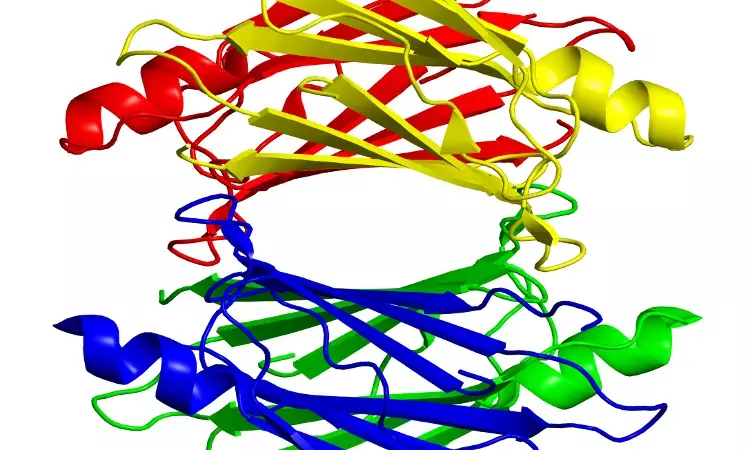- Home
- Medical news & Guidelines
- Anesthesiology
- Cardiology and CTVS
- Critical Care
- Dentistry
- Dermatology
- Diabetes and Endocrinology
- ENT
- Gastroenterology
- Medicine
- Nephrology
- Neurology
- Obstretics-Gynaecology
- Oncology
- Ophthalmology
- Orthopaedics
- Pediatrics-Neonatology
- Psychiatry
- Pulmonology
- Radiology
- Surgery
- Urology
- Laboratory Medicine
- Diet
- Nursing
- Paramedical
- Physiotherapy
- Health news
- Fact Check
- Bone Health Fact Check
- Brain Health Fact Check
- Cancer Related Fact Check
- Child Care Fact Check
- Dental and oral health fact check
- Diabetes and metabolic health fact check
- Diet and Nutrition Fact Check
- Eye and ENT Care Fact Check
- Fitness fact check
- Gut health fact check
- Heart health fact check
- Kidney health fact check
- Medical education fact check
- Men's health fact check
- Respiratory fact check
- Skin and hair care fact check
- Vaccine and Immunization fact check
- Women's health fact check
- AYUSH
- State News
- Andaman and Nicobar Islands
- Andhra Pradesh
- Arunachal Pradesh
- Assam
- Bihar
- Chandigarh
- Chattisgarh
- Dadra and Nagar Haveli
- Daman and Diu
- Delhi
- Goa
- Gujarat
- Haryana
- Himachal Pradesh
- Jammu & Kashmir
- Jharkhand
- Karnataka
- Kerala
- Ladakh
- Lakshadweep
- Madhya Pradesh
- Maharashtra
- Manipur
- Meghalaya
- Mizoram
- Nagaland
- Odisha
- Puducherry
- Punjab
- Rajasthan
- Sikkim
- Tamil Nadu
- Telangana
- Tripura
- Uttar Pradesh
- Uttrakhand
- West Bengal
- Medical Education
- Industry
Low plasma transthyretin risk factor for incident Heart Failure: JAMA

Transthyretin is one of several proteins that can cause amyloidosis, a postsecretory protein folding disorder.
Low transthyretin concentrations were associated with a higher risk of incident Heart Failure (HF) suggests a new study published in JAMA Cardiology.
Transthyretin amyloidosis with cardiac involvement is the most common phenotype and is increasingly recognized as an important contributor to heart failure (HF) and mortality in older individuals. Both ATTRm (hereditary transthyretin cardiac amyloidosis) and ATTRwt (wild-type transthyretin cardiac amyloidosis) cardiac amyloidosis may manifest as heart failure (HF). However, whether low plasma transthyretin concentration confers increased risk of incident HF in the general population is unknown. So, researchers evaluated whether low plasma transthyretin concentration is associated with incident HF in the general population. they analyzed the data from 2 similar prospective cohort studies of the Danish general population, the Copenhagen General Population Study (CGPS; n = 9582) and the Copenhagen City Heart Study (CCHS; n = 7385). Participants from both studies were observed for survival time endpoints until March 2017. Data were analyzed from March to June 2019. Researchers also evaluated whether genetic variants in TTR associated with increasing tetramer instability and lower transthyretin concentration and thus associated with a higher risk of HF. Patients were categorized based on the Transthyretin concentration at or below the 5th percentile, between the 5th and 95th percentile (reference), and greater than the 95th percentile (genetic variants in TTR). On median follow-up of 12.6 years in CGPS and 21.7 years in CCHS, 441 individuals (4.6%) in the CGPS and 1122 individuals (15.2%) in the CCHS developed Heart Failure.
Key findings of the study:
♦Using heterozygotes for p.T139M, (the most stable variant of transthyretin) as the reference group, researchers observed a stepwise reduction in transthyretin concentration for wild-type TTR (−16.5%), for p.G26S (−18.1%), and heterozygotes for other variants (p.V142I, p.H110N, and p.D119N; −30.8%)
♦Researchers found Baseline plasma transthyretin concentrations at or below the 5th percentile were associated with incident HF
♦They also noted risk of HF was highest in men with low transthyretin levels
♦They reported corresponding Hazard ratios (HRs) for incident HF were 1.14 for wild-type variants, 1.29 for the p.G26S variant, and 2.04 for other variants.
The authors concluded, "In this study, lower plasma concentrations and genetically determined transthyretin concentrations were associated with a higher risk of incident HF. These results are compatible with a potential mechanistic association between low transthyretin concentration as a marker of tetramer instability and incident HF in the general population".
For further information:
Medical Dialogues Bureau consists of a team of passionate medical/scientific writers, led by doctors and healthcare researchers. Our team efforts to bring you updated and timely news about the important happenings of the medical and healthcare sector. Our editorial team can be reached at editorial@medicaldialogues.in.
Dr Kamal Kant Kohli-MBBS, DTCD- a chest specialist with more than 30 years of practice and a flair for writing clinical articles, Dr Kamal Kant Kohli joined Medical Dialogues as a Chief Editor of Medical News. Besides writing articles, as an editor, he proofreads and verifies all the medical content published on Medical Dialogues including those coming from journals, studies,medical conferences,guidelines etc. Email: drkohli@medicaldialogues.in. Contact no. 011-43720751


